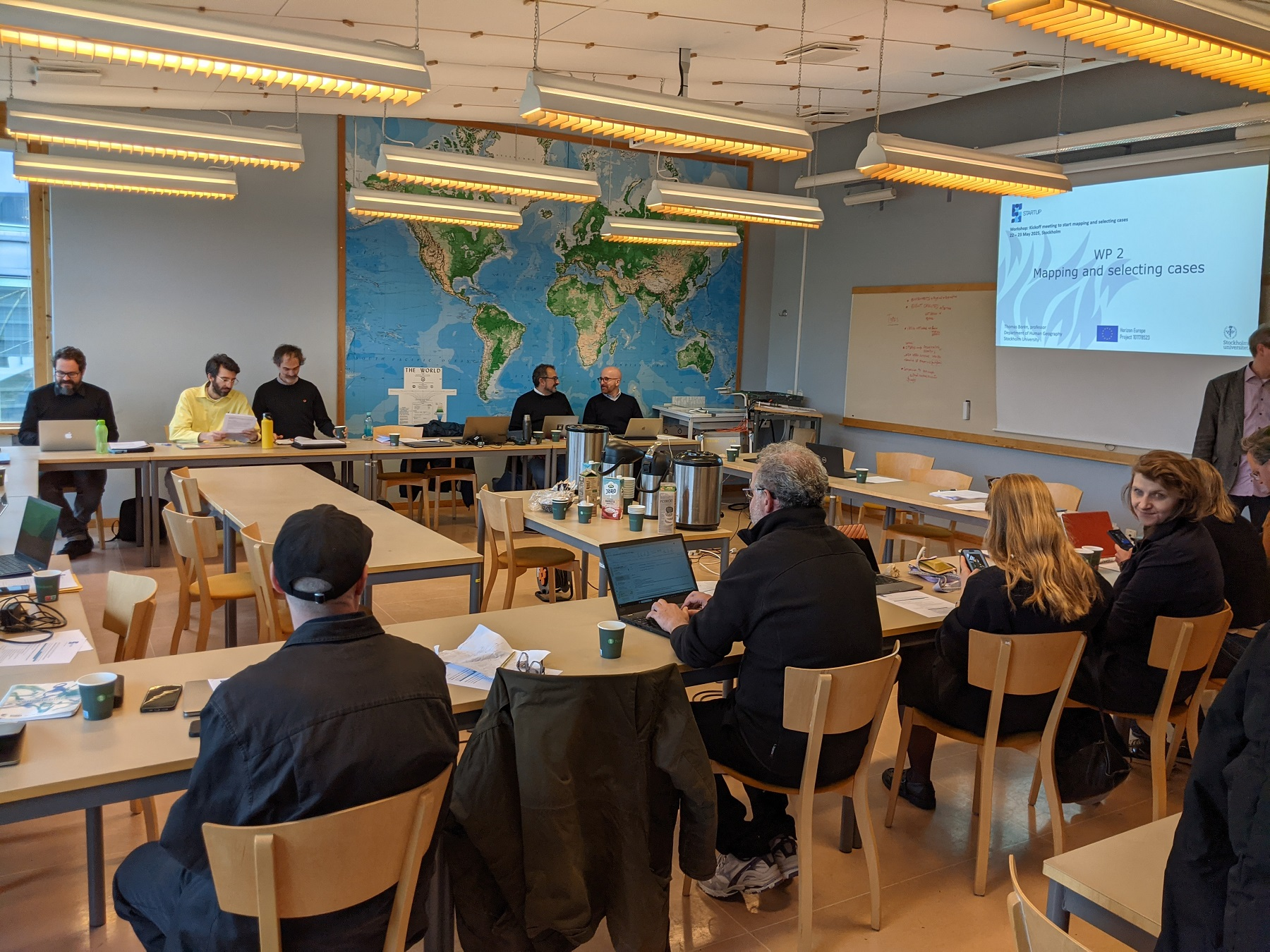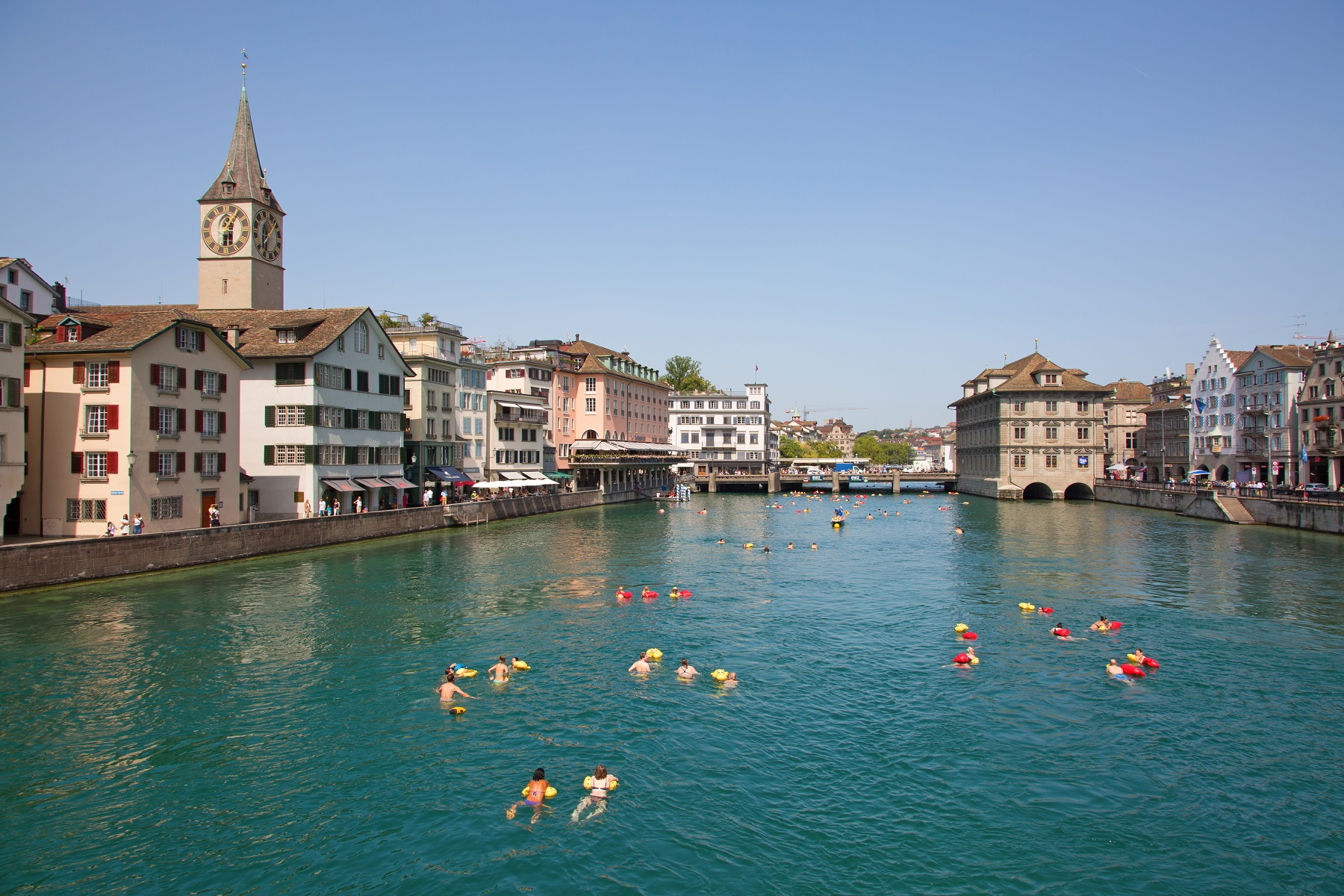Zeitz, Jana Friederike
Jana Friederike Zeitz, M.Sc. Geography
(area of specialisation: Urban and Regional Development Management)

Studied Geography with specialisation on Urban and Regional Development at the Department of Geography, Ruhr University Bochum.
Research interests:
- The right to the city
- Social and spatial inequality
- Urban and neighbourhood development planning
- Housing market and allocation strategies
Contact:
Phone: + 49 (0) 231 9051-244
E-Mail: jana.zeitz@ils-research.de
The ILS has joined the international, cross-sector Swimmable Cities movement
Swimmable Cities is a network of experts in urban swimming environment design, public engagement, community building, policy, safety, public health, waterway restoration, and water quality. Focused on improving and expanding the quantity, quality, and accessibility of outdoor and open-water swimming opportunities for all, the movement currently includes 125 organizations across 72 cities and towns in 27 countries. More…
The ILS has joined the international, cross-sector Swimmable Cities movement
Swimmable Cities is a network of experts in urban swimming environment design, public engagement, community building, policy, safety, public health, waterway restoration, and water quality. Focused on improving and expanding the quantity, quality, and accessibility of outdoor and open-water swimming opportunities for all, the movement currently includes 125 organizations across 72 cities and towns in 27 countries. By joining this movement, the ILS embraces the opportunity to engage with a promising and forward-looking research area that intersects with a range of pressing contemporary and future challenges related to urban liveability, sustainability and active lifestyle.
You can find out more about the initiative here.
Wissenschaftsjahr 2025: Themenabend Zukunftsenergie in Dortmund
Wie wichtig Energie ist, wurde zuletzt am massiven Stromausfall in Portugal und Spanien deutlich. Doch wie können sich Städte und ihre Bewohner*innen zukunftssicher aufstellen? Wie gelingt die Energiewende? Um diese Fragen geht es beim Themenabend zur Energiezukunft am Montag, 16. Juni, auf der Eventfläche TwentyOne der DEW21 in Dortmund. Die Stadt Dortmund veranstaltet ihn gemeinsam mit dem Projekt „Power2Change: Mission Energiewende“ sowie weiteren Partner*innen aus Wissenschaft und Wirtschaft im „Wissenschaftsjahr 2025 – Zukunftsenergie“. ILS-Wissenschaftlerin Sarah Friese ist als Expertin mit dabei. Infos und Anmeldung
Projekttreffen von Startup in Stockholm
ILS-Wissenschaftler*innen Dr. Sabine Weck und Jan Bunse haben im Mai am Projekttreffen des EU Horizon Projekts “Startup” in Stockholm teilgenommen. Das europaweite Forschungsprojekt beschäftigt sich mit der Frage, welche räumlichen Wirkungen kleinteilige Kultureinrichtungen entfalten – und wie Architektur, Governance und Nachhaltigkeit dabei zusammenwirken. Ziel des Projekts ist es, kulturelle Räume besser zu verstehen, die nicht nur kreativ und lokal verankert sind, sondern auch Impulse für eine lebenswerte Zukunft setzen. Mehr…
Projekttreffen von Startup in Stockholm
ILS-Wissenschaftler*innen Dr. Sabine Weck und Jan Bunse haben im Mai am Projekttreffen des EU Horizon Projekts “Startup” in Stockholm teilgenommen. Das europaweite Forschungsprojekt beschäftigt sich mit der Frage, welche räumlichen Wirkungen kleinteilige Kultureinrichtungen entfalten – und wie Architektur, Governance und Nachhaltigkeit dabei zusammenwirken. Eine zentrale Inspirationsquelle ist das New European Bauhaus, eine Initiative der EU, die für ein schönes, nachhaltiges und inklusives Zusammenleben steht. Ziel des Projekts ist es, kulturelle Räume besser zu verstehen, die nicht nur kreativ und lokal verankert sind, sondern auch Impulse für eine lebenswerte Zukunft setzen. In Stockholm lag der Schwerpunkt des Treffens auf der Entwicklung einer gemeinsamen Methodik zur Auswahl von Kultureinrichtungen. Mithilfe öffentlicher Karten und der fachlichen Expertise der beteiligten Partner wurde intensiv an Kriterien gearbeitet, um die passenden Fallstudien zu identifizieren.
Untersucht werden im Projekt insgesamt jeweils zwölf multidisziplinäre Kultureinrichtungen in sieben europäischen Städten: Trenčín, Stockholm, Sevilla, Madrid, Dortmund, Straßburg und Danzig. Das Treffen brachte wichtige Fortschritte – sowohl bei der Auswahl relevanter Kriterien als auch bei der strategischen Ausrichtung des Gesamtprojekts. Im Jahr 2026 folgen Interviews mit lokalen Akteur*innen, um ein tieferes Verständnis für die Wirkung und Strukturen dieser Einrichtungen zu gewinnen. Ab 2027 sollen die Erkenntnisse dann in konkreten Pilotprojekten umgesetzt werden. Im Ruhrgebiet wird dies in Kooperation mit die Urbanisten e.V. aus Dortmund geschehen. Weitere Informationen zum Projekt und seinem Verlauf sind unter www.horizon-startup.eu verfügbar.







